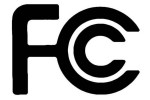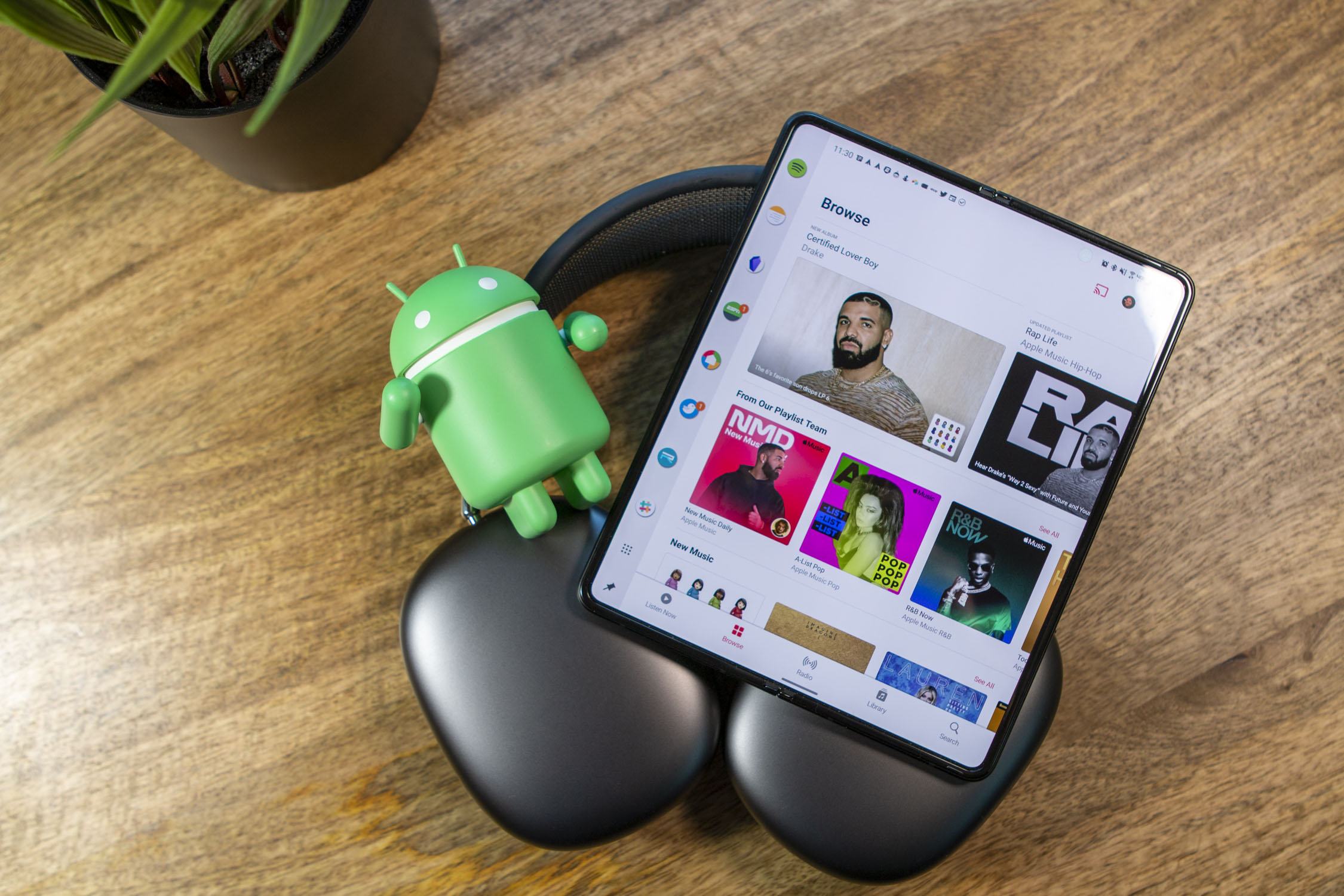 We understand why carriers need to impose an Early Termination Fee – they provide discounts based on the idea a consumer will pay for a certain length of service and when they don’t, they need to recoup their costs. When the Nexus One launched, we were surprised to see that in addition to T-Mobile’s ETF, Google was imposing an ETF of their own. The ETF fees have caught the FTC’s eye before, but this time around they’re including Google in their quest for fairness.
We understand why carriers need to impose an Early Termination Fee – they provide discounts based on the idea a consumer will pay for a certain length of service and when they don’t, they need to recoup their costs. When the Nexus One launched, we were surprised to see that in addition to T-Mobile’s ETF, Google was imposing an ETF of their own. The ETF fees have caught the FTC’s eye before, but this time around they’re including Google in their quest for fairness.
In essence, Google is acting as an Amazon or BestBuy, both of which already impose these same fees as third party retailers. This led some to question our reasons for bringing up the issue in the first place. Maybe we’re asking for too much from Google, but if they’re really trying to change/alter this whole distribution model for the better, I think it’s fair to ask that THEY handle the ETF with T-MOBILE rather than confusing the customer with paying 2 different ETFs.
We’ll see what the FCC thinks/concludes in due time, but for now – here is what they sent to Google:
The purpose of this letter is to gather information about whether customers are adequately informed about Google’s Equipment Recovery Fee in connection with its offering of the Nexus One to customers who agree to a two-year contract with T-Mobile. Because consumers are required to pay this Fee if they terminate their contracts early (within 120 days of purchase in this case), we regard the Fee as an Early Termination Fee (“ETF”). We recognize that there may be various rationales for ETFs. At the same time, these fees are often substantial (and in some cases are increasing) and have an important impact on consumers’ ability to switch carriers.1 We therefore believe it is essential that consumers fully understand what they are signing up for—both in the short term and over the life of the contract—when they accept a service plan with an early termination fee.
The FCC is currently investigating options for improving consumer information and transparency about communications services and fees, including ETFs, as a followup
to our Notice of Inquiry on Consumer Disclosure issued in August 2009.2 Our discussions with wireless companies since December indicate that there is no standard
framework for structuring and applying ETFs throughout the wireless industry. We also know that some companies do not have ETFs. While different companies may choose to offer different kinds of service plans to their customers, the absence of a standard framework makes it especially important that consumers have a clear understanding of terms and practices of individual companies, which will allow them to compare services offered by different providers on a clear and consistent basis.Google’s introduction of the Nexus One handset presents consumers with new options for obtaining mobile wireless service, from a new entrant in the wireless phone
market. The Commission welcomes new choices for consumers and new entry into the market because it recognizes that robust competition benefits consumers by
accommodating the wide variety of consumers’ communications needs.At the same time, where new options may subject consumers to substantial ETFs,
potentially from more than one entity, the Commission has a special interest in ensuring that consumers have a clear and complete understanding of the rates, terms, and
conditions on which the communications services are being offered and the rationale for those rates, terms, and conditions. The combination of ETFs from Google and T-Mobile for the Nexus One is also unique among the four major national carriers. Consumers have been surprised by this policy and by its financial impact. Please let us know your rationale(s) for these combined fees, and whether you have coordinated or will coordinate on these fees and on the disclosure of their combined effect.In the interest of clarifying these important consumer issues, we are now writing simultaneously to multiple companies to ask a standard set of questions on approaches to ETFs and their implementation. This is an essential step to ensuring that consumers have the information that helps them make informed choices in a competitive marketplace. Please send us your responses to the following questions by February 23, 2010.
In response to these questions, please make sure to describe how and where you disclose the relevant information to consumers. Please send us examples of the channels by which you make those disclosures, including: (1) Print, online, television, and radio advertisements; (2) Statements on your website (indicate where the relevant pages appear on the site); (3) Point-of-sale brochures; (4) Sales scripts; (5) Explanations and itemization on monthly bills; and (6) Any other format.
1. Do your ETFs apply to all service plans or only some? If so, which ones?
2. What is the amount of the ETF for each service plan where ETFs apply? If there are different ETFs for different plans, what is the rationale for those differences?
3. How much of a discount on handset purchase is given in return for a consumer accepting an ETF? Does the amount of the discount differ by device, and if so,
how?
4. Does the ETF itself vary by device (e.g., higher ETFs for advanced devices)? If higher ETFs apply to a certain class of devices, exactly how is that class defined?
5. Is it possible for consumers to buy a handset from you at full price to avoid an ETF? If this is possible, can consumers buy unsubsidized handsets online, as well
as at brick-and-mortar stores?
6. Do monthly service rates and terms differ: (1) between customers who assume a term commitment and accept an ETF, and those who don’t, and (2) between
customers who purchase an unsubsidized device (either from your company or a third party), and those who purchase a subsidized device? If so, how do they
differ, and what is the rationale for the difference? Can customers easily determine the impacts of their decisions and their rates and terms?
7. Are ETFs prorated so that the customer’s liability decreases over time? If so, what is the exact schedule by which they are prorated?
8. If a customer renews his or her contract without buying a new handset, does his or her monthly service fee change in any way?
9. How long is the trial period during which consumers can cancel their service without an ETF penalty? If they cancel, can they return the handset? If they
return it, will they receive a full refund, no refund, or a refund minus a restocking and/or refurbishing fee?
10. When do consumers receive their first bill under your service plans? How does the trial period relate, if at all, to receipt of the first bill?
11. Are there consumer fees or charges in addition to ETFs if consumers buy handsets and/or service plans from online phone dealers, such as Amazon, LetsTalk, and
Simplexity (d/b/a Wirefly), or from a service provider, if a customer does not complete the contract term? If so, what are they, and what are their levels, terms,
and conditions? Do the fees or charges affect the ETFs and if so, how?
12. Press reports and public statements from wireless companies have attributed ETFs to several different factors. What is the rationale for your ETF(s), and how
specifically do the structure and level of those ETF(s) relate to that rationale?Request for Confidential Treatment. If Google requests that any information or documents responsive to this letter be treated in a confidential manner, it shall submit,
along with all responsive information and documents, a statement in accordance with section 0.459 of the Commission’s rules. 47 C.F.R. § 0.459. Requests for confidential
treatment must comply with the requirements of section 0.459, including the standards of specificity mandated by section 0.459(b).
Here are the letter to the other parties (PDF Links):
[Via FCC]










The Google ERF is much easier to explain than carriers’ ETFs. In Google’s case T-Mobile cuts them a check for $350 for every new customer that qualifies, signs up, and retains service for 120 days. Google gives the purchaser an ‘advance’ on that $350 so their out of pocket cost is lower. If you cancel prior to 120days then Google doesn’t get its $350 so they charge you for it.
Screw the ETF how about looking into all these bullshit fees that are tacked onto the bill?
I hope the FCC kicks some ass like they have lately when it comes to the BS cell carriers spew out at you.
County Gross Receipts Tax$0.75
City Gross Receipts Tax $0.75
County 911 $0.25
DEAF Surcharge $0.03
Federal Universal Service Fund
5, 6, and 7 really cut to the heart of the matter.
In reality, the carrier is *extending credit* to the customer in the amount of the subsidy, expecting the customer to pay it back. But if the customer doesn’t use the subsidy, the carrier still expects the customer to pay the same rate as a subsidized user. These subsidies should be treated as CREDIT, just like with a credit card or a loan.
We need a “customer’s bill of rights”, which would stipulate:
1. If the customer buys a phone at full price, the carrier cannot impose a time limit or ETF of any kind. (Currently, all but TMO force you in to a contract)
2. The subsidy payment should be itemized on the customer’s bill, based on the length of the contract and amount of the subsidy. For example, a subsidy of $150 over a 1 year period should be billed at $12.50 a month as a separate line item from the monthly access fees. Each statement should also list the amount left on the subsidy.
3. At the end of the contract term, the subsidy fee should be dropped from the phone bill, and no new time limitations shall be imposed on the customer.
4. If the customer cancels his contract early, he shall only be liable for the unpaid portion of the subsidy.
So the long and short of it is if I walk in with a phone and just need a SIM card, I should pay $12 or $15 (or whatever) less than the guy who gets his new phone for “free”. That guy who got his free phone should also get a $15 break on his bill after his 12 or 24 month contract expires.
Banks aren’t allowed to pull the kind of BS the phone companies are. Why are the carriers getting away with it?
I know for a fact you can do month-to-month on verizon with your own equipment.
Most of what you said makes sense, but alot carriers are taking baby steps by prorating etfs.
I agree with Tom 100%. It is entirely unfair that we still have to pay their $220+ ETF even if we buy the phone at full price. That makes it incredibly difficult to change carriers. I honestly dont see why this is allowed. If we choose to leave early and the carrier has the full amount of their device paid to them, I dont think we should owe them anything else but a middle finger when we say goodbye.
I hope contracts stay as they are, they are confusing enough as it is, and Tom I know for a fact that you can do NO CONTRACT on Verizon and AT&T you probably don’t get a lot of reps that explain it, also I know Verizon the contract ETF goes down ever month $10 for a Droid $5 for a simple phone
YOU have a choice now sign a 2 year, sign a one Year or do no contract (and no ETF)
I bought My Motorola Droid from Verizon the price breakdown was as follows
$569.99 no contract, no etf
$369.99 – $100 Mail in rebate 1 year contract $350 ETF
$299.99 – $100 Mail in rebate 2 Year contract $350 ETF
I get a work discount and got it for $229.99 with a one year contract $350 ETF and all Verizons ETF go down $10 each month on a PDA even with a one year
I think you guys should do some research the policies are not as bad as everyone is making it out to be
also go look at expansys and see what they are selling the Milestone for with out contract $574. That is almost exactly the same price as Verizon no contract price
that is the way cellular works in the USA, please don’t take my choice away
I think that these contract company’s are just trying to tie you down and make it difficult to leave because if it was easy to leave then they would loose half their customers. Well, They will never tie me down again, I canceled my contract and bought a prepaid Straight Talk phone from Walmart, the first month is a little more expensive because I had to pay for the phone but from then on it’s so much cheaper that I have to laugh at my old bills. Now I have unlimited talk, texts and data for an unbelievably cheap $45 per month and I thought that prepaid was a lower quality in some way but I have been so pleasantly surprised to discover that Straight Talk is on Verizon’s network nationwide and the signal is better than it was on contract.
Over two years ago verizon was ordered to refund our ETF. they continue to reply by saying that the case is now in its second appeal. why does the FCC and FTC not do something about this crap. Bottom line is consumers will end up not getting crap.
If you are the victim of thios situation as well, write to your elected officials, don’t buy Verizon phones.
The only way consumers can get justice is with our pocketbooks. Get T-Mobile or Boost and let the big guys sweat.